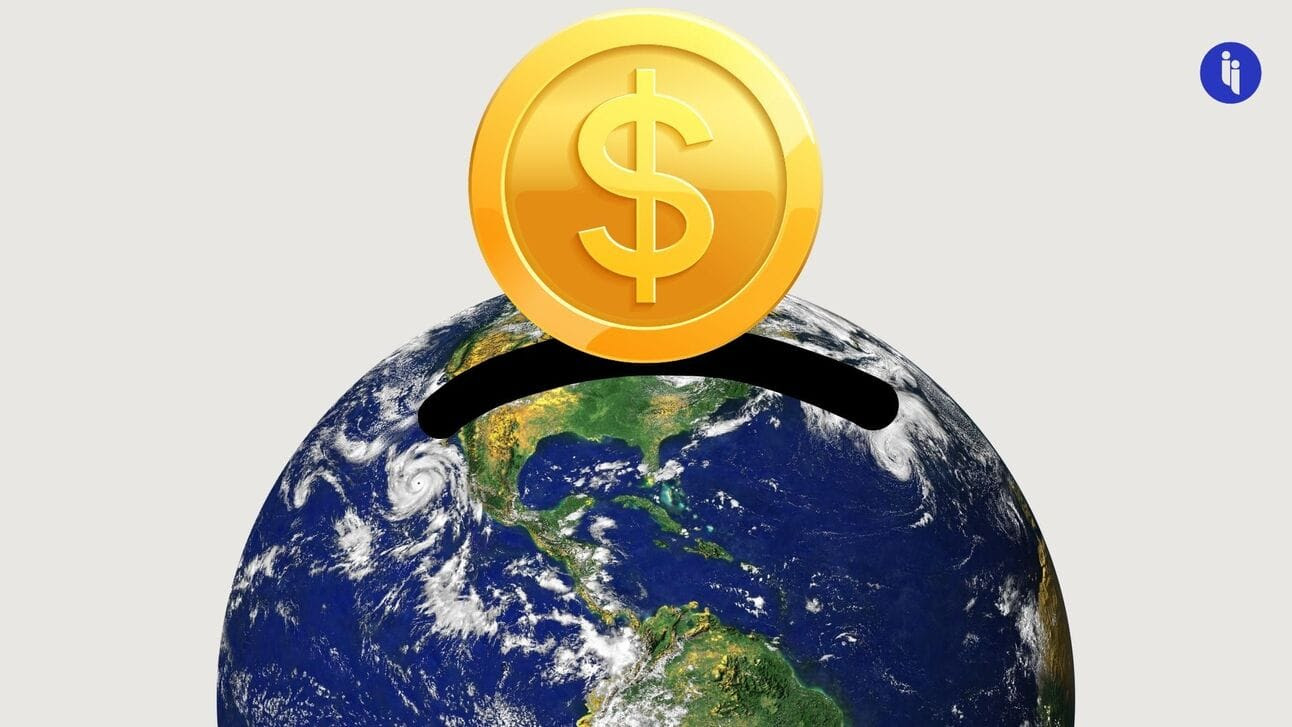Today we’re doing what we do best: wading through 200-something pages of turgid prose and acronyms to get you what you need to know.
The latest Economic Outlook from the Organisation for Economic Co-operation and Development (OECD) just dropped. And maybe it’s all that fresh spring-time air, but the Paris-based club of rich nations sounds pretty cheery.
Despite the geopolitical and other risks at play, the OECD says:
Stay on top of your world from inside your inbox.
Subscribe for free today and receive way much more insights.
Trusted by 134,000+ subscribers
No spam. No noise. Unsubscribe any time.
- Inflation is easing faster than expected
- Private sector confidence is improving
- Global activity is more resilient than thought
- Unemployment remains low, and
- Growth in trade has finally turned positive
That’s why the OECD is revising up the growth estimate it just made in February, from 2.9% to 3.1%. But aggregate data only gets you so far, so let’s take a closer look:
🇺🇸 US – “The fiscal deficit is elevated as the US enters a period where spending on mandatory social programmes is rising due to population ageing”
The US economy beat everyone’s expectations last year, but the OECD is echoing the IMF’s recent concerns about high US debt. The organisation’s boffins remain bullish for now, but they warn that “efforts to narrow the deficit should be prioritised”, especially given the country’s ageing population.
🇦🇷 Argentina – “High inflation, a sizeable but necessary fiscal adjustment, and policy uncertainty will weigh on private consumption and investment for most of 2024.”
Translation: things in Argentina will get worse before they get better. The country’s economy contracted by 1.6% last year due in part to the massive (if unavoidable) currency devaluation by President Javier Milei. But the OECD believes Argentinians will see “a gradual recovery in late 2024 and in 2025”. Given the recent austerity protests, the words “gradual” and “late” might hit hard.
🇪🇺 EU – “The [EU’s] economy remains resilient amid elevated geopolitical uncertainty”
While the initial knock-on effects from Russia’s invasion of Ukraine are easing, underlying inflation remains stickier than a kouign-amann. It’s unlikely to return to the European Central Bank’s 2% target before 2025. So overall, the OECD is neither pumped nor worried about the Euro area’s immediate future. It’s ‘meh’.
🇨🇳 China – “Following a moderate rebound, the Chinese economy will return to its gradually slowing path with potential growth falling due to unfavourable demographics and slower productivity growth.”
The OECD has slightly nudged up its forecasts for China, with a little help from government spending and recovering exports. But that’s no reason for Beijing to crack open the baijiu just yet, especially given the OECD’s warnings about China’s property markets, debt, and ageing. That’s why the world (or at least us) will be glued to the Communist Party’s long-delayed third plenum in July.
🇿🇦 South Africa – “Parliamentary elections scheduled for late May have heightened uncertainty.”
South Africa’s 29 May election is shaping up to be the most competitive since apartheid ended. The ruling African National Congress (ANC) party is now set to lose its decades-long majority in parliament, due in part to its inability to confront South Africa’s various economic problems.
Between blackouts, bottlenecks, and unemployment, growth came in at 0.4% in 2023, so the OECD is recommending a shopping list of structural changes: reducing government wages, reforming state-owned companies, fixing the energy grid, and slashing regulation. Seems easy enough, right…?
INTRIGUE’S TAKE
Is there any point to these kinds of international reports? Here are three:
- Forecasting can be glorified guesswork, but it offers something to help investors, businesses, and governments nail that Jell-O to the wall
- These reports can offer ammunition to domestic reformers, who seize on specific lines to try and shift the political debate at home, and
- The reports are really the culmination of deep research by thousands of experts at both the OECD and IMF, and this research gets shared with the OECD’s 38 member governments who fund the organisation.
Plus, a fun fact to close: China isn’t an OECD member, but it’s a regular observer and participant, which makes sense when you remember that China is the top trade partner for most OECD members.
Also worth noting:
- The OECD’s most important annual event is its Ministerial Council Meeting, which wraps in Paris today (Friday). The prime minister of Japan, Fumio Kishida, delivered the opening address yesterday on “co-creating the flow of change” to overcome global crises.
- There are currently six countries in the process of joining the OECD: Argentina, Brazil, Bulgaria, Croatia, Peru, and Romania, while Indonesia has expressed interest in joining.







